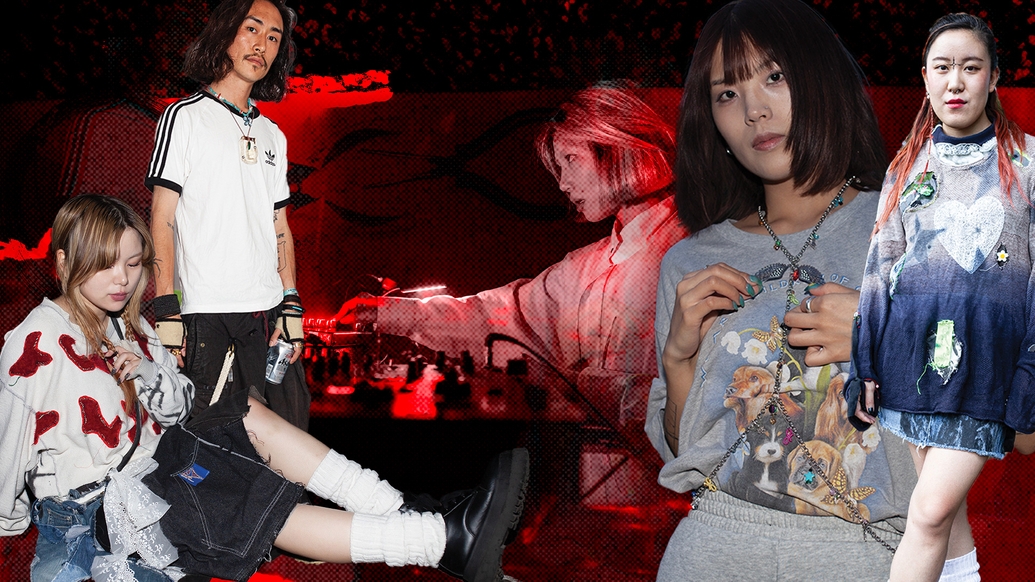
In Tokyo's DIY underground, raving and fashion collide
In Japan’s sprawling capital city there’s a booming underground of creatives exploring the intersections between DIY culture, high-end fashion and raving. James Gui travels to Tokyo to learn more about parties with pop-up shops, the up-cycling ‘remake’ trend, and how Y2K style reigns supreme
In March, a crowd of Tokyo bohemians converged in an abandoned building in the Kabukicho red-light district. The occasion: a rave thrown by model and actress Kiko Mizuhara for the Heaven by Marc Jacobs clothing line. But this wasn’t your typical fashion party. “At some point, our electric system got shut down, and there was a toilet flood,” says Mizuhara. The rave tapped into the DIY spirit of Tokyo’s interdisciplinary underground, with different rooms designed by visual artists like Monika Mogi and Annco Miura, two dancefloors featuring local heavyweights including Mobilegirl, sudden star, Loci and Yuka Mizuhara, and even a karaoke chamber. “Usually, at a fashion party, there is more socialising, but for my parties, I just want people to get lost in the music, feel confident, inspired, and make new friends.”
As forms of self-expression, music and fashion have always been linked. There’s always an outfit to go with the sound: the twee kids from Bristol had their anoraks, London grime MCs rocked the Nike Air Max 95s, and it’s hard to imagine going to a techno club in Europe without seeing a sea of Berghain black. The Mizuhara sisters might represent the tip of the iceberg of fashion and dance music in Tokyo, with Kiko repping the former and Yuka holding down the latter. “We exchange our fave music [and] also fashion design,” says Yuka. “We go clubbing [and] dancing a lot together; that's how we started organising parties.”
But the rabbit hole of fashion and music in Tokyo goes much deeper. The city is small enough for its microscenes to overlap and big enough to hold the contradictions between brand sponsorships and ground-up DIY designers. Flush with money from the likes of Nike, Gucci or Prada, some underground artists in Japan have been empowered to reach new audiences. Other people chart their own path, selling customised clothing or curating vintage pop-ups at parties, rupturing the ever-accelerating cycle of manufacturing and consumption.
One artist who straddles the worlds of boutique fashion and underground music in Tokyo is Korean-born modular mastermind Yeohee Kim, also known as machìna. DJ Mag meets her at a cafe in a quiet corner of Shibuya ward, fresh off of a weekend at WOMB Tokyo’s 23rd anniversary party with Richie Hawtin and Wata Igarashi. It’s not the first time she’s shared the stage with the minimal techno heavyweight; Hawtin tapped her to play Prada Extends Tokyo at Terrada last summer, alongside visuals by Shohei Fujimoto.
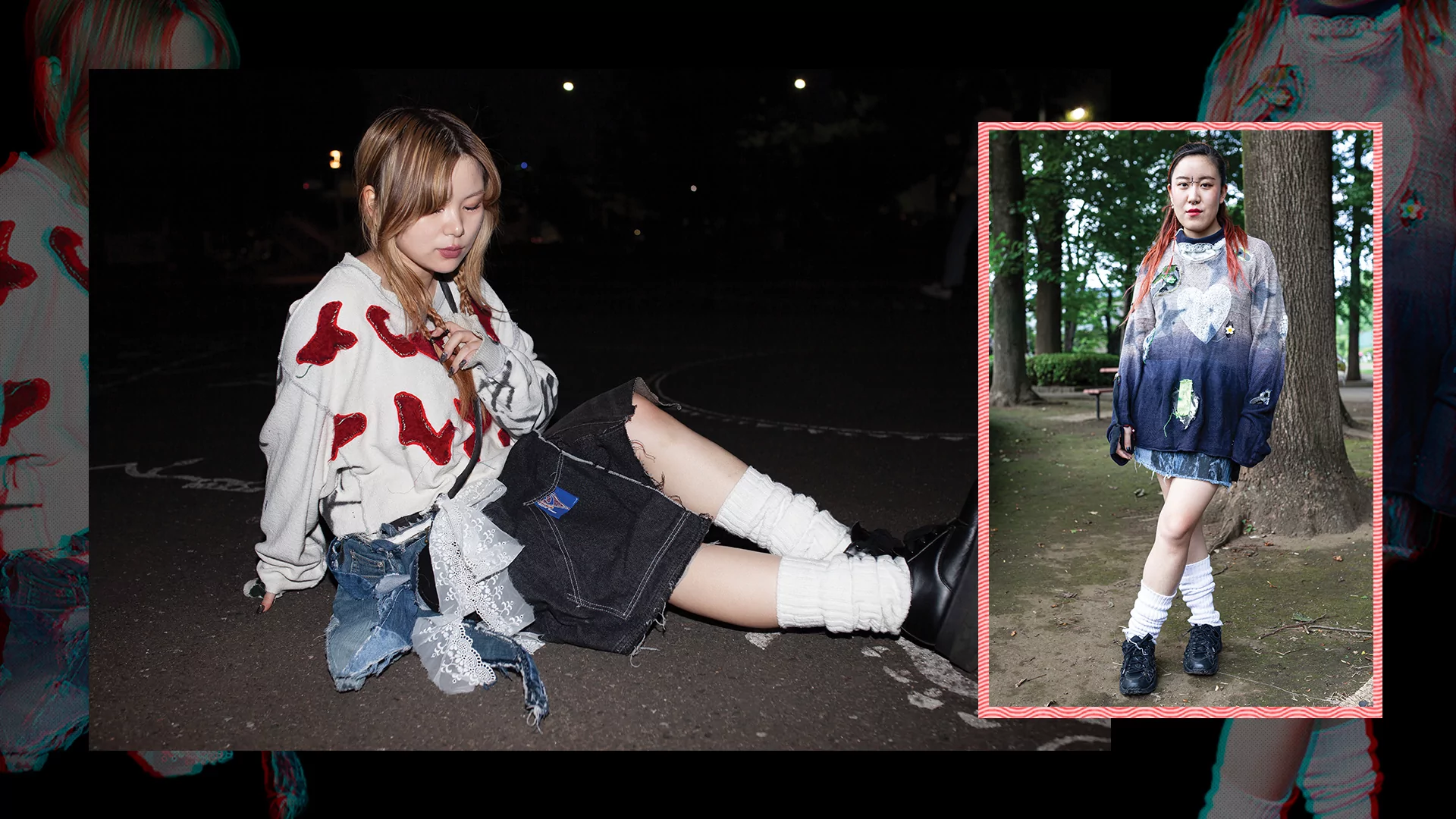
“We built a store in Shinjuku because we want people to come here before the party. But we also want people who don’t go to clubs to come, so we made a store to spread the party vibes” – Watanabe
Kim brings together sartorial and musical expression in her artistry. “Music and fashion and anything, really, is in the end expressing yourself, and knowing yourself is the most important thing,” she says. For the release party of her 2021 album ‘Compass Point’ at WOMB, she designed and constructed her own dress, inspired by Paco Rabanne’s 1960s avant-garde mirror disc dresses. “The whole album theme [revolved around] mirrors. So I really wanted a special outfit,” says Kim. Discovering the Spanish designer’s work only three days before the gig, she decided to make it herself instead of waiting for an order that might not arrive on time, inspired by the DIY kits that Rabanne released in 1996. “I went to [department store] Tokyu Hands, I bought some mirrors, and I made it,” she remembers. “I borrowed a drill, literally cut like 500 mirrors. It was so painful, but I made it in two days.”
In different pockets of Tokyo, young artists are taking that DIY ethic and remixing it on an entirely different level. One hub for underground designers, DJs, and musicians is Mitame, a tiny shop located on the third floor of a nondescript office building in Shinjuku. Run by Miku Watanabe and Pokona, they’ve been doing pop-ups at club events in addition to the brick-and-mortar store they’ve been running since 2021. “We built a store in Shinjuku because we want people to come here before the party,” says Watanabe. “But we also want people who don’t go to clubs to come, so we made a store to spread the party vibes.”
It’s a party for sure; as soon as you walk in, you’re greeted by a shock of colours and textures, alien carapaces and fluffy pastels that you’re sure to encounter at basement haunts like Forestlimit. More likely than not, what you’re looking at has been designed by a me school graduate, the alt-fashion academy that serves as the proving grounds for many of Tokyo’s underground designers, like BLURRINESS and Super Hot Songs. “I did two collections while at me school,” says Nizika, the designer behind Super Hot Songs, who also moonlights as a performance artist. Learning the ins and outs of haute couture at coconogacco and me school, Nizika brought her creations into the party for the first time at Ether Tokio, a series organised by Loci, Sudden Star, and Speedy Lee Genesis. “The audience was all people who liked the same music or were otherwise on the same wavelength,” says Nizika. “So it felt like what I intended to do came across really well.”
Since then, she’s become a fixture at parties in Tokyo, putting on musical-esque performances to a script and soundtrack of her own making. “I don’t have a computer, so I screen record music videos with my smartphone,” says Nizika. “I connect these screen recordings, convert them to mp3, then play the mix during my performance.” Some of her pieces are for sale at Mitame, their extravagant drapery with Martian silhouettes tucked away in a corner of the shop. Other pieces at Mitame are designed by musicians themselves — local artists Felix Idle (aka Wa?ste), Sudden Star and lIlI (pronounced “Lily”) all sell at Mitame. “Anything I know about independent designers and this scene was really opened up by going to Mitame,” says Felix Idle.
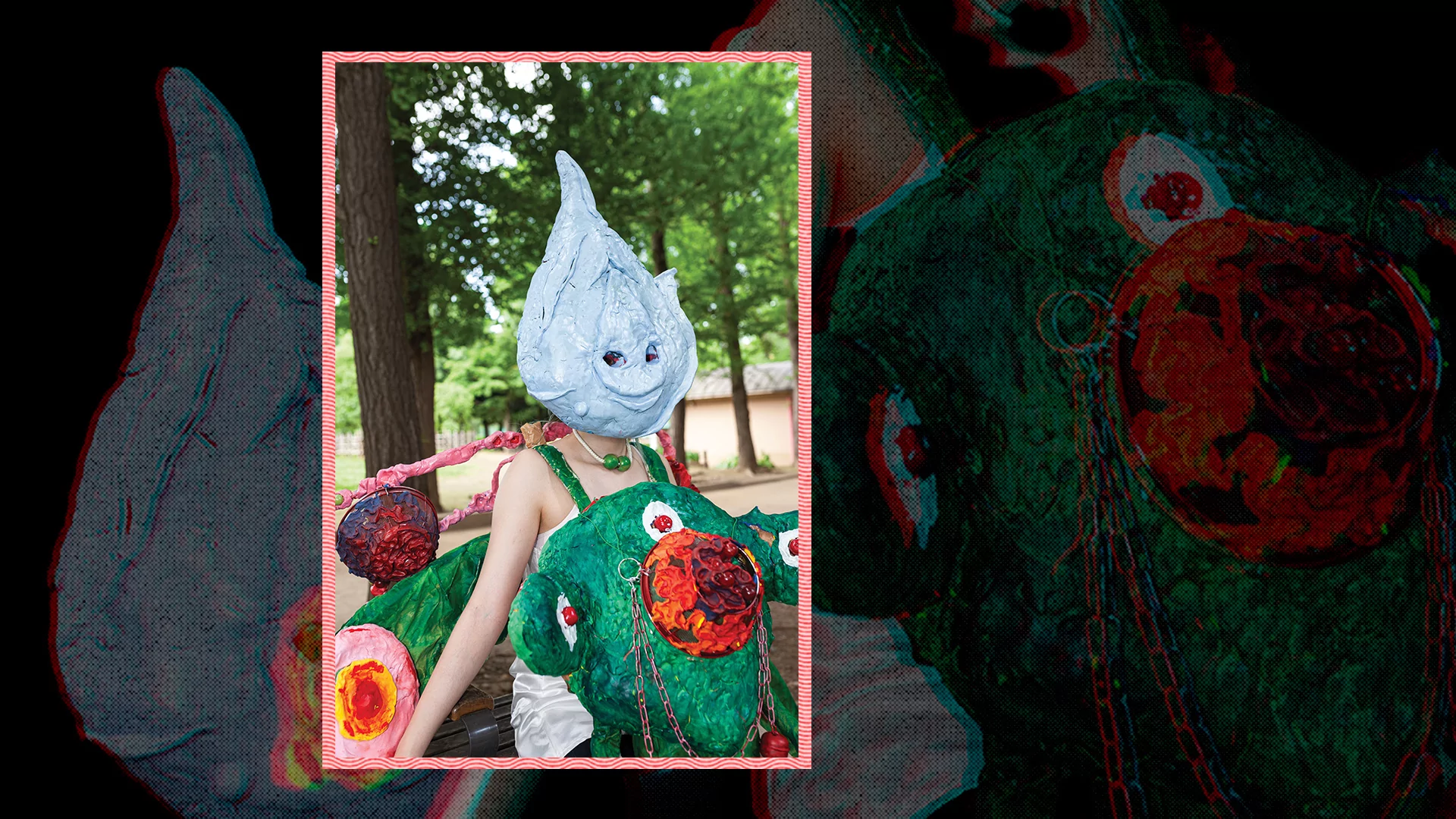
Based in Tokyo by way of Sydney, Idle considers himself more of a musician than a fashion designer, having released his first record under the Wa?ste moniker on Shanghai’s Genome 6.66Mbp back in 2017. “When I lived in Australia I customised clothing and I have even had friends doing fashion at [Melbourne university] RMIT, but it took meeting the people who run Mitame for me to really get pulled into this DIY fashion world.” Through art shows, community discussion events, pop-ups, and workshops, Mitame has been a vital meeting point for various artistic disciplines in Tokyo’s underground since its inception; Sudden Star even designed the flyer for the store’s opening party in 2021. “I think people who buy from there seem like they go to the same type of party,” says Kyoto-based Miyu Ogawa, whose brand Comez and Goes is distributed at Mitame and who occasionally comes up to Tokyo for the rare pop-up. That “type of party” might be hard to define, but examples abound.
Forestlimit’s weekly K/A/T/O Massacre might be the marquee event, its genre- agnostic line-ups and vintage wares a mainstay of the scene since 2014; Nizika first sold her Super Hot Songs pieces at an outdoor edition of MASSACRE. But now, similar parties that either have clothes for sale or are organised by people who run vintage select shops — like Kota Watanabe’s PURITY, MoEPiKA’s Enigma, or JUBEE’s Rave Racers — have since proliferated. “We’re inspired by ’90s rave culture,” says MoEPiKA. Y2K-influenced techwear and monochrome backpacks, custom- made for partying: it’s clear what they’re going for. “The upcoming, new generation, they love both music and fashion, and we love that vibe as well.”
This weekend, DJ Mag has a chance to catch another of those parties at the intersection of fashion and music: Mitame’s having a pop-up at Slick, a sex-positive and queer-friendly rave at ComMunE on the roof of the Shibuya PARCO building. The Mitame crew met the Slick organisers Midori Morita and Elin McCready at another party (“Ether Tokio in either Shimokitazawa or at Forestlimit,” remembers Watanabe), and later were tapped to do a pop-up. As soon as DJ Mag enters the top floor of PARCO, we’re greeted by racks of clothing curated by Mitame, handmade harnesses from BOUND by Ceca, and silk screening-in-progress by Xiaolong print with a design that reads “500 BPM+”. The chaos is part of the fun. “It’s all friends, all family, and nothing is too overplanned,” says McCready.
Between opener tennessee, headliner Amor Satyr, and Mari Sakurai on closing duties, there’s an arc that bends from deep house and UKG to jungle and Tokyo’s purported favourite genre, “fast techno”. And at some point around midnight, TRAXMAN’s ‘Pacman Juke’ blasts over the sound system, to the crowd’s delight. The fits are just as varied: minimal monochrome, Y2K cybernetics, massive silhouettes, and tight fetish gear in every combination imaginable.“I think event promoters are now recognizing pop-ups are really useful for world-building — visually communicating a vibe or attitude — so it's an extra dimension you can use to give your event its own specific identity and stand out from the competition,” says Felix Idle.
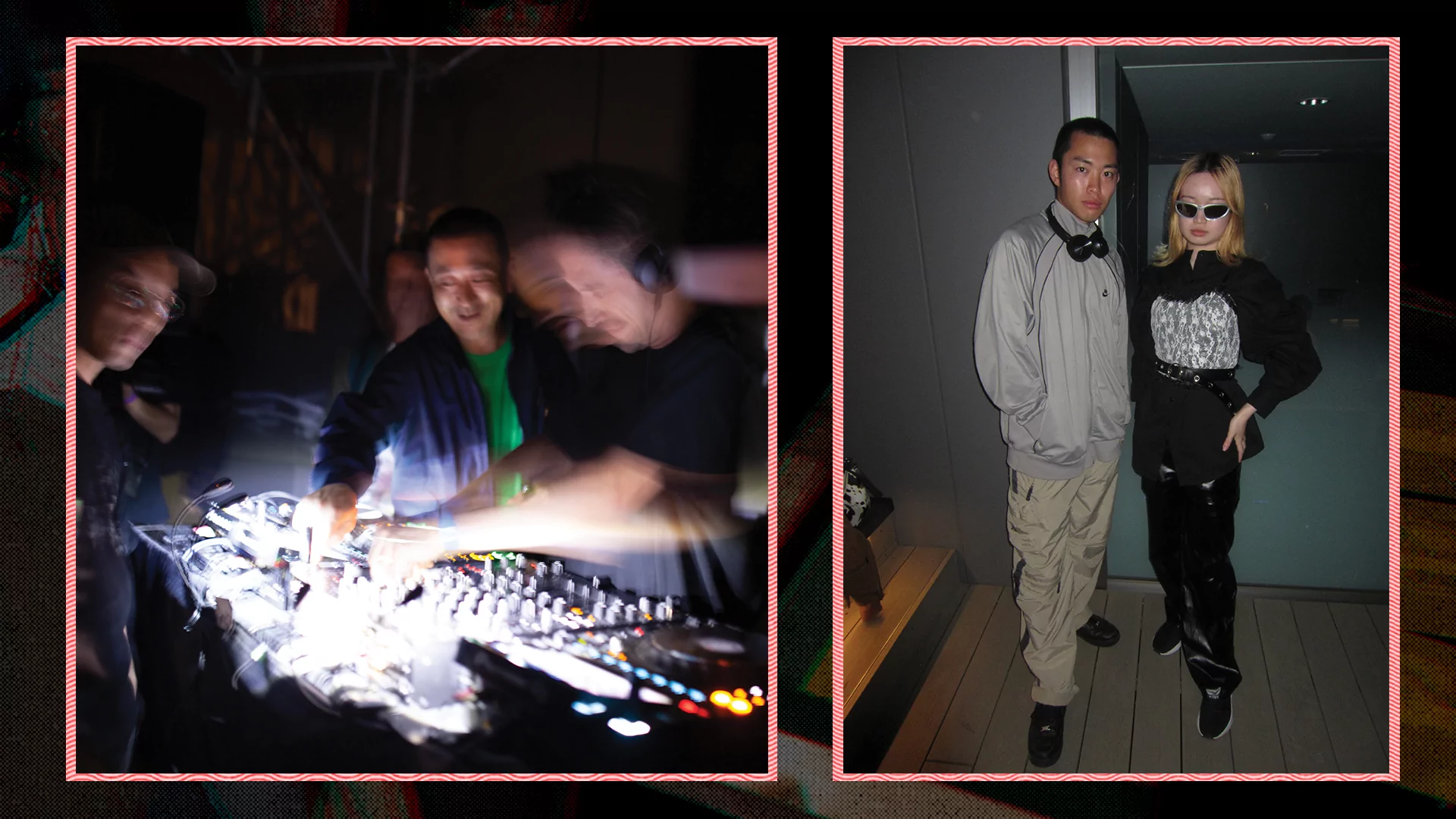
“We’re inspired by ’90s rave culture. The upcoming, new generation, they love both music and fashion, and we love that vibe as well” – MoEPiKA
On the flip side, larger brands have also been tapping into the communities and cultures around underground music in Tokyo to add meaning to their clothing. “I think certain fashion boutiques, like GR8 or Cav Empt, recognise the value of music in making a fully fleshed-out culture around themselves and make an effort to cultivate a musical culture,” says Idle. Walk into RADD LOUNGE and you might notice the N.A.A.F.I hot sauce or Aphex Twin doormats; Domicile, on the other hand, cuts closer to the global hyperpop scene, with local names like Lil Soft Tennis alongside the likes of umru and Petal Supply at their latest pop-up.
“A lot of what happens in the fashion industry just ends within the fashion industry,” says suzuishi, a DJ and employee at GR8, the temple of streetwear in Harajuku known for collaborations with Swedish rapper Yung Lean. “But we have Kiri directing our music programming, which has birthed a lot of connections to the music scene.” In 2021, Idle and Sudden Star held a pop-up at GR8 at suzuishi’s invitation. Contrasting with the store’s clean-cut, boutique image, Idle’s wearable collages pulled from well-worn denim, found objects, and secondhand fabrics, a textile parallel of the club music deconstruction that made his name in the music scene.
Later in DJ Mag’s visit, the club is going off on a Tuesday: Sudden Star is spinning a Bloodz Boi track at Shimokitazawa’s SPREAD. In this district of live houses (live music venues) and vintage shops, he’s playing alongside dream-pop phenom yuzuha and Northern Californian hyperpop artist emotegi. Tonight, Y2K style rules supreme, and the music is similarly nostalgic — Sudden Star’s selection of emo-rap fusions, trance melancholia from DJ Sine, ethereal jangle and reverb-soaked crooning by yuzuha — and the venue is packed with a barely college-aged crowd. No one seems to mind that the clouds of cigarette smoke in the narrow hallway leading to the venue are stinking up their clothes; the looks are as grimy as the smells.
The fact that most clubs in Tokyo allow smoking might have some effect on the clubbing uniform as well: less expensive pieces, more DIY or vintage drip. It’s a question of finances too. “Many people cannot buy expensive clothes,” says Mitame’s Miku Watanabe. “But remaking clothing is not expensive.” The idea of “remake” (or upcycled) clothing has caught on in Tokyo’s underground as the city becomes less and less affordable for young artists. “The reason secondhand stuff is still available is that it’s good quality,” says lIlI. The DJ and art pop musician is a mainstay at venues like Forestlimit, and also sells her remake jewellery brand Yume de Hirotta Gomi (Trash Found in a Dream) at Mitame; in June, she rented out some of her pieces for a runway show at Laforet Harajuku organised by killremote. “I enjoy putting this stuff through the filter of my inspirations, which include Y2K anime and horror games. No one sells the things that I want, so I need to make them.”
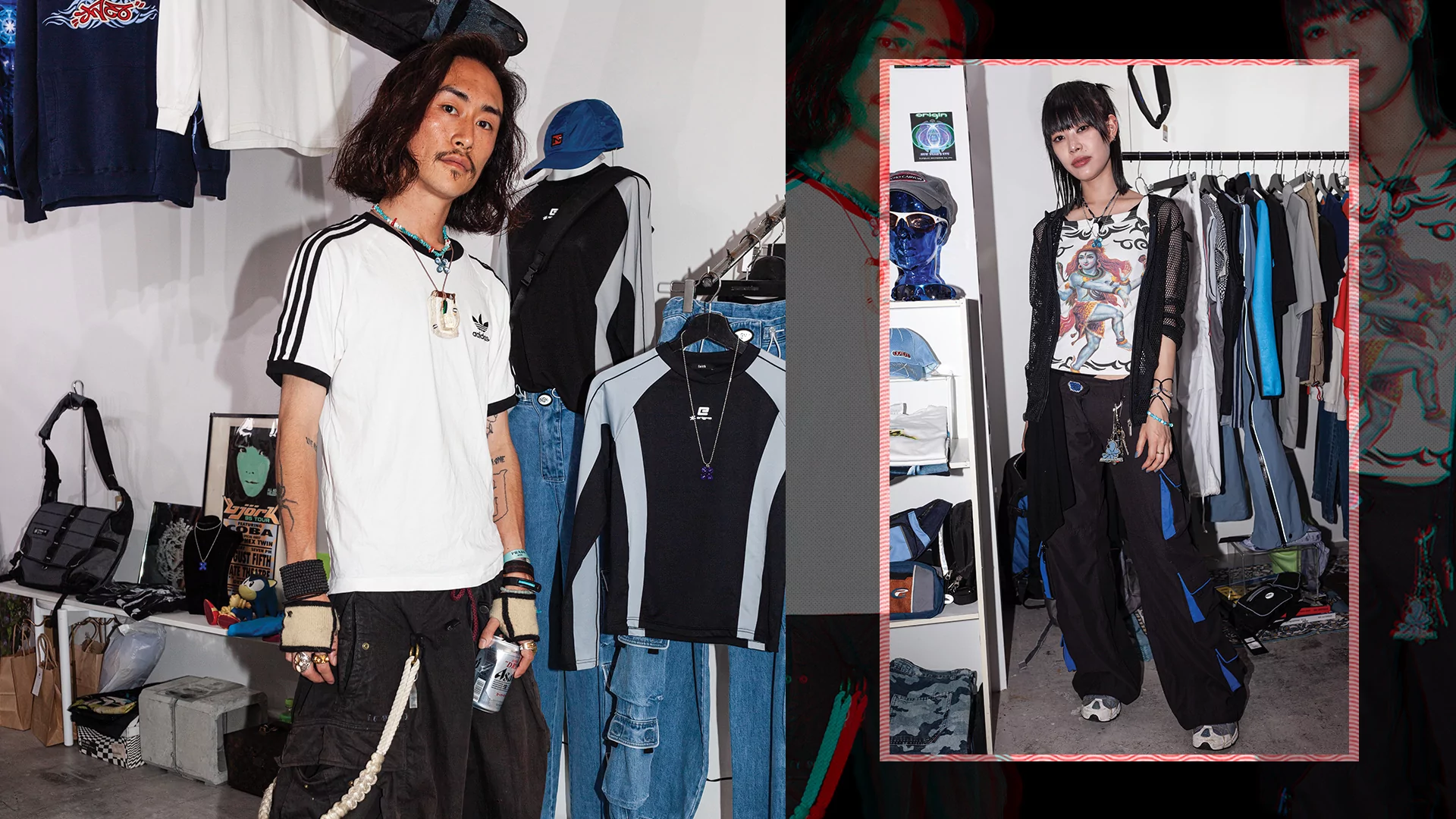
Of course, DIY clothing is a global phenomenon: for Miyu Ogawa (Comez and Goes), her preferred “trushy” style has roots in her time living in Copenhagen for two years. “I was pretty much hanging with techno, rave scene kids, and we were all broke but never felt broke [because] we did many things to survive. Making DIY clothes was one of them,” says Ogawa. “Many people are drunk in Copenhagen, so they drop a lot of shit. We made them into cool pieces and wore them at parties.”
When Ogawa came back to Japan, her friends in the music scene liked her designs, wearing them while DJing or during album shoots. “I don’t remember if there were many people making DIY clothes then, but [Osaka-based] ririn yu rusty was the kind of style I liked: trushy style.” Ogawa thinks of “trushy” as “reused stuff handed off from your family members or friends or strangers.” In a bid against the environmental and labour concerns associated with fast fashion or the fashion industry as a whole, Ogawa and other DIY designers in the scene have been “finding treasure in trush”.
That process of discovery is what fuels some designers and artists in Tokyo’s underground. “In the same way that I like digging for music, I like digging for objects,” says lIlI. Her pieces make use of found objects: for example, a plastic harp from a dagashiya (traditional sweets store) and small trinkets from junk stores in Koenji or Nakano. “When I make music, it’s a painful process that kind of eats away at myself,” she says. “But with jewellery, it’s a lot more chill and relaxing.”
With a critical mass of up-and-coming fashion designers, musicians, and all-round creatives, Tokyo has become a burgeoning ecosystem for interdisciplinary underground art. “I often like to buy my friends’ work and support the scene,” says Hikaru, a member of the sister pop duo tamanaramen. It shows: today she’s wearing a top with detached and reversible sleeves designed by Felix Idle that she bought at Mitame. Like most nascent scenes, it’s one that celebrates itself — yet the quality of its output is forcing the wider world to take notice.
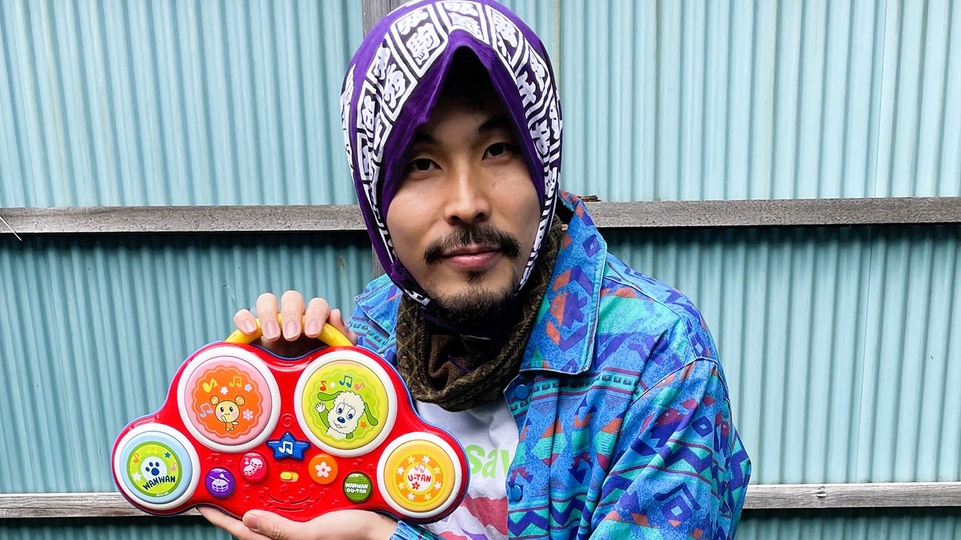
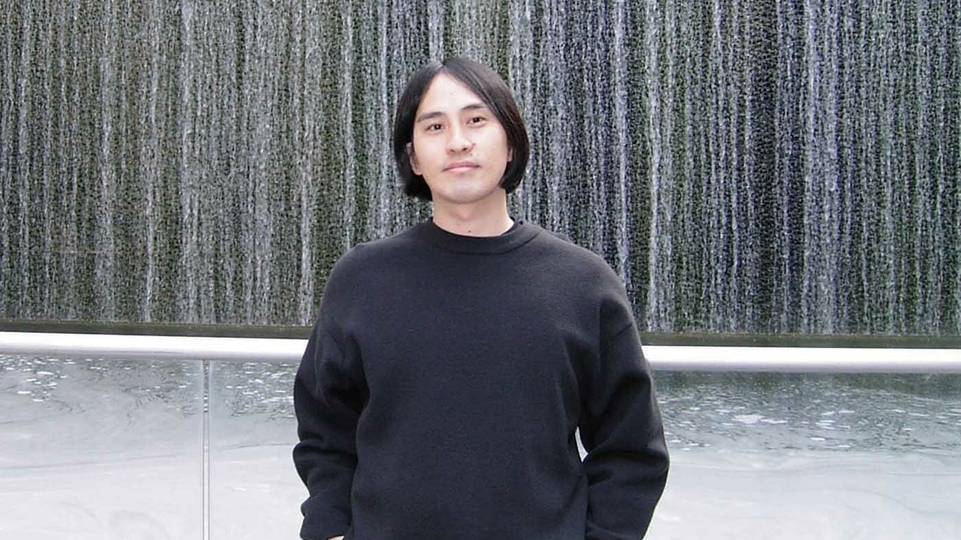
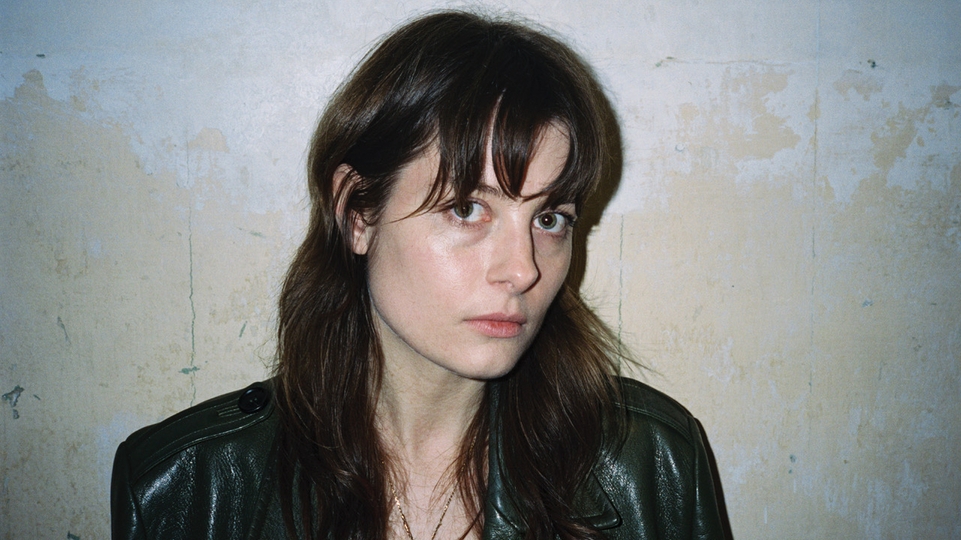
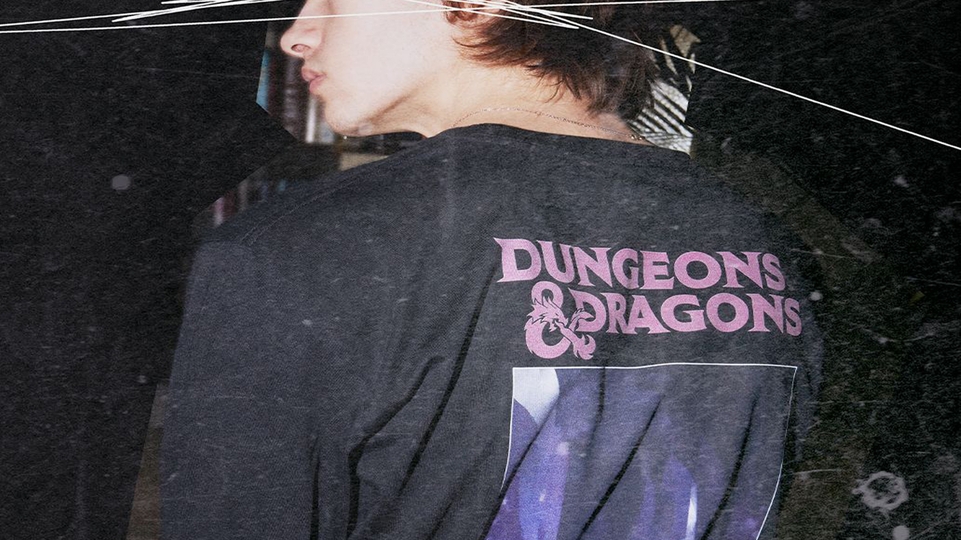

.jpg?itok=jHLzH4vN)